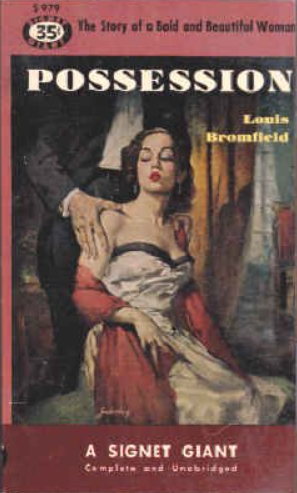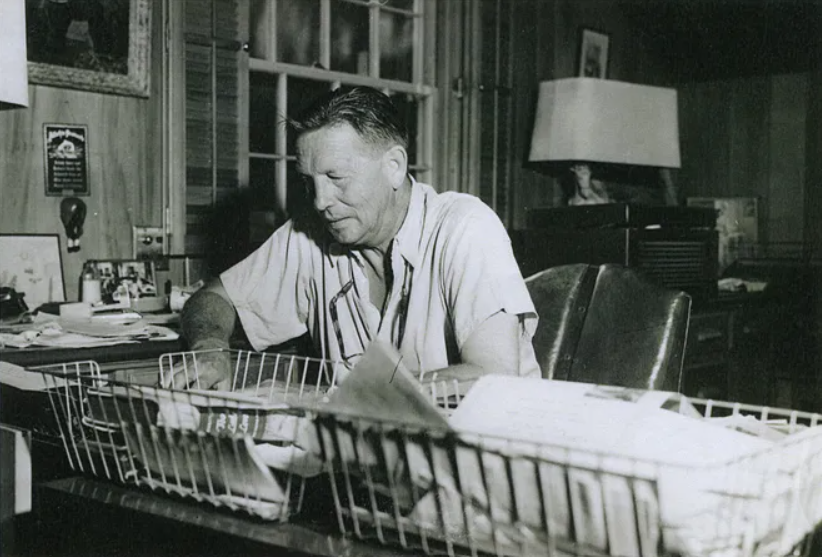



IN the fading October twilight Grandpa Tolliver sat eating an apple and reading The Decline and Fall of the Roman Empire. The ponderous book (volume III) lay spread open upon his bony knees, for it was too heavy to be supported in any other way, and he read by leaning far over and peering at the pages through steel rimmed spectacles which were not quite clear, as they never were. The dimness of lens, however, did not appear to annoy him; undisturbed he read on as if the spectacles sharpened his vision instead of dimming it. Things were, after all, what you believed them to be; therefore the spectacles served their purpose. He was not one to be bothered by such small things....
The room in which he sat was square and not too large. On two sides there were windows and in one corner an enormous and funereal bed of black walnut (the nuptial bed of three generations in the Tolliver family) which bore at the moment the imprint of the perverse and angular old body. He had lain there to think. Sometimes he lay thus for hours at a time in a sort of coma, ruminating the extraordinary and imbecile diversity of life. But it was the number of books which contributed the dominating characteristic of the room. There was row upon row of them rising from floor to ceiling, rows added year by year out of Grandpa’s infinitesimal income until at last they had walled him in. There were books bound in fine leather and books in cheap leather, worn and frayed at the corners, books in cheap boards and an immense number of books bound in yellow paper. Pressed close against the books on the north wall of the room there stood an enormous desk of the same funereal black walnut—a desk filled with innumerable pigeonholes into which had been stuffed without order or sequence bits of paper scribbled over with a handwriting that was fine and erratic like the tracks of a tiny bird strayed into an inkpot. The papers ranged through every variety of shade from the yellowish bisque of ancient documents to the gray white of comparatively new ones. Of all the room it was the desk alone that had an appearance of untidiness; it lay under a pall of dust save for two small spots rubbed clean by the sharp elbows of Grandpa Tolliver.
What did he write? What was contained in this immense collection of documents? No one knew that; not even the curiosity of his daughter-in-law Hattie, who entered the room each morning to throw open the windows (an action he detested) and force the old man out into the chill air of the streets, had been able to penetrate the mysteries of the extraordinary bird tracks. A word with luck, here or there.... Nothing more. And she had examined them often enough in a fierce effort to penetrate the secret of his strength. From years of breathless, headlong writing the words had lost all resemblance to combinations of letters. The letters themselves were obscured; they flowed into one another until each one, in the fashion of the Chinese, had become a symbol, a mystery to which the old man alone held the key. It was the writing of a man whose pen had never been able to keep pace with the lightning speed of his thoughts. It may have been that the old man himself could not have deciphered the writing on those sheets which long since had turned to a yellow bisque. So far as any one could discover, he never took them from the pigeonholes and read them a second time. They were simply thrust away to turn yellow and gather dust, for Grandpa Tolliver had suffered for years from a sense of the immense futility of everything.
As he sat in the fading light in his decrepit rocking chair the appearance of the old man struck faintly a note of the sinister. Something in the shape of his great, bony head, in the appearance of his unkempt gray beard, in the remarkable angularity of his lean body gave him the appearance of one in alliance with the powers of darkness. The peculiar gray green of his glittering eyes had a way of piercing through pretense, through barriers of reserve and secrecy. They were the eyes of one who knew far too much. They were the eyes that got somehow at the core of things, so that a person—even his bitterest enemy, the vigorous and unsubtle Hattie—winced before the shattering light that gathered in their depths. They looked out from under shaggy brows with a knowledge bred of solitude that was something more than human. And he had a terrible way of using them, of watching people, of silently and powerfully prying open their shells. For Grandpa Tolliver there were no longer any illusions; he was therefore a horrid and intolerable old man.
Source: Project Gutenburg eBook of Possession